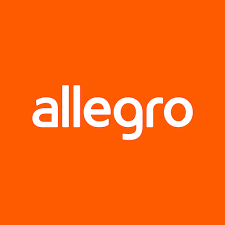Poland Sets Its Sights on the 2040 Olympics: A Transformational National Project Takes Shape
Poland has taken its first decisive step toward one of the most ambitious goals in its modern sporti
moreAxglo Strengthens European Network with Official Distributors in the UK, Czech Republic, Germany, and Slovak Republic
Axglo, the Canadian golf equipment specialist renowned for its premium push carts and golf accessori
moreVAT Becomes Official Supplier to Swiss-Ski and Backs Biathlon Star Amy Baserga
VAT, a global leader in high-end vacuum solutions, has signed a three-season partnership with Swiss-
moreThe Mountain Studio Reports 44% Sales Growth as Marcel Hirscher Targets Year-Round Outdoor Brand Expansion
The Mountain Studio, the premium outdoor apparel company co-founded by ski racing legend Marcel Hirs
moreSGS Expands Global Cycling Testing Expertise with Acquisition of EFBE
SGS, the world’s leading testing, inspection, and certification company, has announced the acquisi
more
"Business
Partner search for the Sports industry in Central Europe"
Expanding into Central & Eastern Europe's E-Commerce Market: Strategies for Asian Merchants
 2024-02-08
source own
2024-02-08
source own
Central and Eastern Europe (CEE) presents a lucrative frontier for Asian cross-border e-commerce businesses seeking to diversify their market presence. Engaging with regional e-commerce giants could significantly enhance market entry and consumer reach within these territories. Allegro, a dominant force in the CEE e-commerce landscape since its inception in 1999 and based in Poland, boasts a remarkable regional market penetration rate nearing 90%. This platform has been instrumental in shaping the e-commerce ecosystem in CEE, launching an international marketplace to facilitate sales across 24 EU countries. Following its strategic acquisition of Mall Group, the Czech Republic's second-largest e-commerce entity, Allegro has broadened its network to include Poland, Czech Republic, Slovakia, Slovenia, Croatia, and Hungary, tapping into a potential market of over 70 million consumers.
Jakub Kolodynski, Senior Business Development Partner at Allegro, highlights the company's initiative to forge expansive cooperation networks, particularly focusing on the Asia Pacific region. Efforts include providing specialized training for Chinese-speaking merchants and facilitating their access to the CEE consumer base. Kolodynski notes the growing enthusiasm for online shopping among CEE consumers, further accelerated by the Covid-19 pandemic, positioning Allegro as a competitive platform against international counterparts. In Poland, for example, a significant portion of consumers commence their online shopping journey on Allegro, with a vast majority completing their purchases there.
As CEE countries invest in developing new technology sectors and enhancing e-commerce infrastructures, including online payment systems, logistics, and network stability, foreign companies are encouraged to partner with local e-commerce platforms. Such collaborations can offer strategic advantages, especially in markets like Poland, where consumer preference leans heavily towards domestic e-shops. This consumer loyalty to local brands and preference for native language shopping experiences underscore the importance of aligning with CEE platforms to build trust and loyalty among local shoppers.
For small to medium-sized enterprises (SMEs) looking to penetrate this emerging market, Allegro presents a cost-effective solution with transparent pricing policies, including no hidden fees, registration charges, or obligatory subscriptions, and a capped commission fee. The platform's Fee Calculator enables merchants to efficiently plan their marketing strategies, minimizing entry barriers and operational costs.
This evolving landscape presents a promising opportunity for Asian e-commerce operators to establish a foothold in the CEE market, leveraging local partnerships and advanced platforms like Allegro to navigate and succeed in this dynamic consumer space.









